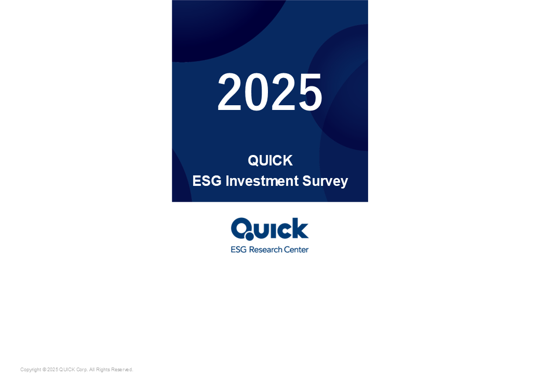Japan Markets ViewToyota’s stock price fell with its unchanged full-year earnings forecast
Aug 11, 2021
[Nikkei QUICK News] On August 4, Toyota Motor Corporation (7203) announced its consolidated financial results (International Financial Reporting Standards) for the April-June period of 2021. Operating income increased to JPY997.4bn (72x YoY), exceeding the QUICK consensus (8 companies, JPY732.7bn as of July 19), which aggregates analyst forecasts. The company achieved a record-high profit for the April-June period, however kept its full-year FY3/22 forecast unchanged due to uncertainty over the future. It will take time for the share price to establish itself at the JPY10,000 mark, as the company must resolve production risks and deal with structural changes.
■ Considering uncertainty
Sales increased to JPY7.9355tn (+72% YoY) and net profit increased to JPY897.8bn (5.7x YoY). The group’s global sales volume increased to 2.75 million units (+49% YoY). Sales of sport-utility vehicles (SUVs) and other vehicles were strong worldwide.
Although the results beat market expectations, the company kept its earnings forecast for the current fiscal year. Toyota plans to achieve an operating income of JPY2.5tn (+14% YoY) for the current fiscal year. Progress in operating income for the April-June period against the full-year is around 40%. Despite the high rate of progress, the company kept its forecast unchanged, saying that it took into account the uncertainty for the July-September period and beyond.
Although many people believed, “the semiconductor shortage plaguing the automotive industry would have a limited impact on Toyota” (automobile analyst in domestic securities firm), the company acknowledged that it is difficult to foresee when the situation would be resolved. In the April-June period, the spread of COVID-19 and the semiconductor shortage had an impact on the production of about 100,000 units.
As of July 19, the QUICK consensus for operating income for the current fiscal year was JPY2.9191tn (19 companies), which the market expected to surpass the highest profit reported in the FY3/16 (JPY2.8539tn). On August 4, expectations for an upward correction were disappointed, and Toyota’s stock price fell on the Tokyo Stock Exchange in the afternoon. At one point, the price dropped to JPY9,825, down by JPY230 (-2.3%) from the previous day.
■ ‘Structural changes’ – the key evaluation parameter
Since reaching a listed high (JPY10,330) in June, the level above JPY10,000 has not been firmly established, and is recognized as a ‘wall’. Recently, more and more analysts have set their price targets at JPY12,000 to JPY13,000, until the production concerns raised by the company are eliminated, the price may not exceed the current level.
It is said that the automotive industry has entered a period of once-in-a-century transformation. Takaki Nakanishi, CEO of Nakanishi Research Institute, points out that dealing with structural changes is more important in determining the market valuation than the immediate profit amount. The first phase of the battle is currently underway over the shift to EVs (electric vehicles).
Toyota has indicated that it plans to sell 8 million EVs and other electric vehicles in 2030, however “it is difficult to say that Japanese automobile manufacturers have dealt with this change in earnest,” says Mr. Nakanishi. The PER (price earnings ratio) is approximately 12x, which is lower than the TSE First Section average (15x). Surviving structural changes such as decarbonization and digitalization will also be essential to improve the market valuation.
NQN News on QUICK Data Factory
https://corporate.quick.co.jp/data-factory/en/product/data017/




